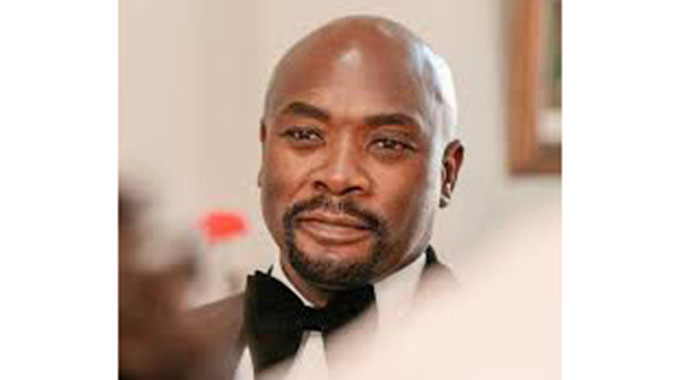ZIBF focuses on knowledge economy
Beaven Tapureta Bookshelf
The rapid globalisation which we have so far witnessed demands that knowledge sectors in developing countries should initiate means to catch up with others. Such investment in knowledge will eventually transform into social and economic change.
this year’s Zimbabwe International Book Fair (ZIBF) is being held from July 27 to August 1 under the theme “Growing the Knowledge Economy Through Research, Writing, Publishing and Reading”. Indeed, the knowledge sector which also includes writers, academics and publishers is poised for a certain awakening. The theme is appropriate because the rest of the world is transforming or expanding from information to knowledge economies.
As is the norm, the Great Indaba Conference, a two-day event which precedes the main ZIBF activities, will unbundle the theme in relevant contexts. Every year the conference is attended by local and international intellectuals, writers and publishers, who discuss and debate the chosen theme.
Other topics to be discussed at the 2015 Indaba Conference include “Research, Writing and the Creative Industries”, “Marketing and Distribution of Books”, “Book Policy”, “Intellectual Property”, “Copyright and Heritage Knowledge”, “Libraries as Temples of Knowledge” and “Publishing in the Digital Revolution”.
However, it is the main theme that is interesting.
The concept of “knowledge economy” has become the guideword for the world’s growing economies. It is the new way of doing things in amazing ways just as the information age that brought the internet created a global village.
While in the past people used their physique to do certain work, today they are using their minds. Innovation is the bedrock of the economies in some developed countries.
Talking of innovation, in Zimbabwe we have had celebrated personalities in that regard. One example is respected farmer Zephaniah Phiri, who initiated a water harvesting project in Zvishavane (Zvishavane Water Project), which has become the pride of our country known in many parts of the world.
Water harvesting
In a book titled “The Water Harvester” (Weaver Press, 2000) based on research done by Mary Witoshynsky about the life of Phiri, the Zvishavane Water Project has come to the rescue of hopeless farmers in wetlands. Research and publishing obviously has brought Zephaniah Phiri’s innovative knowledge in farming to the world’s attention, thereby participating in the knowledge economy one way or another.
Marrying such a great idea with technology makes it grow into an economic product that is put on the global market to save many people. Even in arts and culture, innovativeness counts although it is yet to be understood locally in knowledge economy terms.
According to John Vu, an international software expert and innovator, a knowledge-based economy “relies on the use of ideas rather than physical abilities and on the application of technology rather than the exploitation of cheap labour”.
You could be wondering what the writer’s role in all this is. A writer as a knowledge worker generates knowledge that is packaged for consumption where it is demanded the same way bread is baked/produced and packaged for supply to places where it is needed.
How wonderful then it is to have an opportunity to discuss and debate this serious concept and encourage Zimbabwe and other African countries to join the mainstream knowledge-based development strategies.
In a statement issued at a media briefing at their head office in Harare on June 30, the incoming ZIBF board chairperson Obey Bvute simplified the theme and explained what stakeholders should expect at this year’s Book Fair.
“In understanding the need to develop a knowledge economy in Zimbabwe, ZIBFA appreciates the idea that educators, writers, book publishers, booksellers and librarians are a service sector that can be legitimately tapped by the knowledge economic market,” said Bvute.
This, he said, should inspire ZIBF to create “a new strategic vision and plan” based on a number of realities, one of the realities being “providing an opportunity for young Zimbabwean writers and researchers to disseminate their research findings and outcomes as well as share information with the global community on knowledge based economic development”.
“Growing the knowledge economy is a process which includes economic, social, political, scientific and technological dimensions in a globalised world. It is driven by a combination of processes such as increased mobility of scholars and the general public and the rapid movement of information over space which is enabled by powerful new digital technologies,” said Bvute.
The idea of a collective embrace of “knowledge economy” in developing countries such as Zimbabwe which Bvute highlighted also supports the United Nations Commission on Science and Technology for Development (UNCSTD) 1997 report which said “for developing countries to successfully integrate ICTs and sustainable development in order to participate in the knowledge economy they need to intervene collectively and strategically” (Wikipedia).
New publishing
models
With Zimbabwe having already established a national ICT policy, it should be easy to take further steps in promoting new innovations in that regard. The policy vision is to have a “knowledge-based society with ubiquitous connectivity by 2010”.
The new ZIBF board chairperson has set the mood for this year’s Book Fair as he foregrounded future plans hinged upon “knowledge economy”, hence making the 2015 theme an all-time song for years to come.
“The new era at ZIBFA will also foster transformation through advocacy and co-ordinated action plans of the book industry aimed at the creation of new product types enabled by digital technologies.
“New publishing models are emerging in response to demand for real-time dissemination of information, e.g., Open Access Model, dynamic content, more collaborative research and authoring environments and usage of rich media.
“This will see promotion of innovation where Zimbabwe will be able to develop or acquire digital technologies to publish course materials for global distribution in a way that has never been contemplated in the print era,” Bvute said.
Apart from engaging with the interesting theme, Bvute said the focus will also be on anti-piracy to promote the welfare and intellectual property rights of writers and publishers.
“This will require us to collectively look at new ways of curbing piracy and learn from other countries on how they protect intellectual property rights even in the face of both the print and digital knowledge economy.
“Prior submissions on this aspect will be consolidated and evaluated on their impacts and outcomes and fed into the new initiative to be implemented,” said Bvute.
In addition to other main activities such as Writers Workshop, Publishers, Booksellers and Librarians Workshop as well as the Meet the Author Sessions, the Live Literature Centre, Children’s Reading Tent and the Digital Zone, Bvute said there will be the Junior Achievers Competition, the Teachers Square, the Book Voucher purchase scheme, School Prizes (Best performing schools in 2014 exams), Live literature – Poetry Slam/Renowned Artiste.









Comments